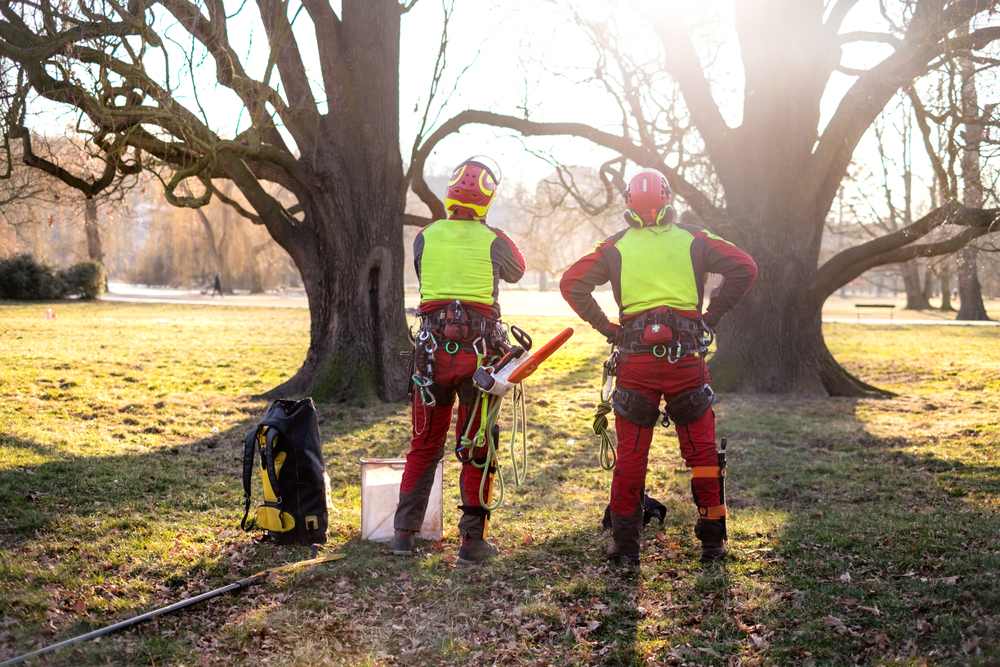Some things are best left to the professionals and tree lopping definitely falls into that category. From working at heights to contending with awkward, heavy branches, there’s no wonder that your services as a tree lopper are sought after. The nature of your work also means that you’re exposed to a number of risks which is why you need to have public liability insurance for your tree lopping business. Today, we’ll take a look at the importance of public liability insurance for tree loppers.
What is public liability insurance for tree loppers?
Public liability insurance is an essential form of insurance cover for tree loppers as it means that you’re protected financially if you cause injury to a third party or damage to property as a result of your actions at work. Liability insurance also means that legal bills are covered if you need to hire a lawyer following a claim. A successful liability claim can amount to thousands of dollars, or even hundreds of thousands of dollars following a serious incident, and you could be liable for costs such as medical bills, rehabilitation costs and repairs. Although there is no legal requirement for you to have liability insurance in place, it’s easy to see why this form of cover is important.
Why is tree loppers public liability insurance important?
High risk work
The reality is that the type of work you undertake as a tree lopper places you at increased risk of a public liability claim. From an injury caused to a member of the public due to your equipment or a falling branch to damage caused to surrounding property, there is a risk that things could go seriously wrong no matter how careful you are. When you work in a high-risk occupation, it’s essential that you protect yourself with the right level of insurance cover.
Contractual obligations
In Australia, there is no legal obligation for you to have public liability insurance in place. However, there may be times when you’re required to provide proof of cover. Due to the nature of your work, it’s likely that there will be times when you’re required to have public liability cover in place as a condition of a contract. Even if you have no contract in place, many employers or clients will want assurances that you have the correct level of insurance cover.
Peace of mind
Tree loppers are typically self-employed which means that you have the flexibility to set your own hours and take the profits home with you after a job is finished. However, many small businesses rely on regular cash flow which means that a public liability claim has the potential to be financially crippling and could even mean that you can no longer operate. Public liability insurance provides you with financial peace of mind so you can be confident in the knowledge that you’re covered – even in the event of an expensive claim. Not only does it provide peace of mind for you, it also gives peace of mind to your customers.
What does public liability insurance cover?
Public liability insurance provides cover if a third party suffers injury or damage to their property as a result of your work-related actions. This could include scenarios such as injury to a passer-by or damage to client property. Your liability insurance covers costs such as compensation payments, court costs and the cost of your legal defence. As with all insurance cover, there are some exclusions attached to every public liability cover. Some examples of things which won’t be covered on your liability insurance include damage or injury to employees, negligent or illegal behaviour, and punitive damages.
How much does public liability insurance cost?
The cost of your public liability insurance will depend on a number of factors but the higher your risk of making a liability claim, the more you can expect to pay with your premiums. Some of the factors which can impact on the cost of your liability insurance include:
- The size of your business
- The type of work you do
- The location of your business
- The number of employees
- The claims history of your business
What additional forms of insurance cover do I need?
Along with public liability insurance, there are a number of other forms of insurance cover that you may wish to consider for your tree lopping business. These include:
- Workers compensation insurance – if you have employees working for you, workers compensation insurance is compulsory cover for your business. This cover means that you’ll be reimbursed for payments made to an employee following a successful compensation claim, such as wages and medical bills.
- Personal accident and illness insurance – if you’re unable to work due to injury or illness, personal accident and illness insurance means that you continue to receive a portion of your income while you recover. For tree loppers, the risky nature of your work means that illness is a real possibility which is why this form of cover is important to consider.
- General property insurance – provides financial cover for your transportable items, such as tools and other equipment, if they’re lost, damaged or stolen. Tree loppers work with expensive, specialised equipment and it can have a significant financial impact if something happened to these items.
- Commercial motor insurance – protect your work vehicle with commercial motor insurance. There are different levels of cover available depending on your needs. Motor vehicle insurance is essential as it covers the costs associated with damage to a third-party vehicle.
Our experienced brokers will take the time to analyse your areas of risk and provide customised insurance solutions to cover your areas of risk. We understand the insurance can be complicated and our experienced team are available to assist with any issues.
For more information about tree loppers public liability insurance, contact GSK Insurance Brokers today on (08) 9478 1933.


